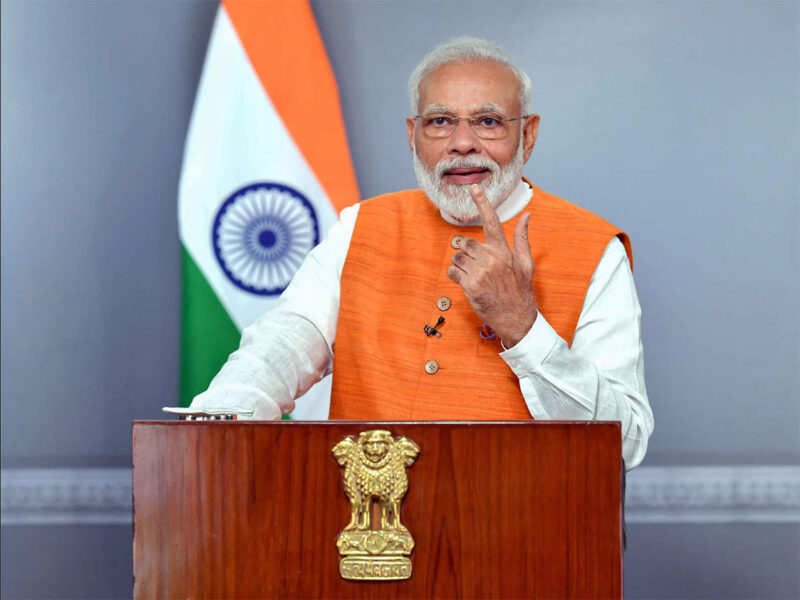Opinion
What Nigeria Should Expect From The Indian Prime Minister’s Visit, by Aisha Yusuf Waziri

As Indian Prime Minister Narendra Modi prepares to visit Nigeria, his agenda holds the potential to deepen the longstanding partnership between the two nations. This visit, the first by an Indian prime minister in 17 years, underscores India’s renewed focus on African relations and, particularly, Nigeria’s role within this scope. From economic collaboration to cultural ties, Modi’s visit is a significant moment for Nigeria to harness a broad range of benefits. Here’s a look at what Nigerians might expect and why this visit matters.
India has long viewed Nigeria as a vital economic partner, with over 200 Indian companies already operating within Nigeria’s borders. These firms have cumulatively invested over $27 billion in Nigeria, spanning industries like telecommunications, pharmaceuticals, and manufacturing. This visit aims to solidify and perhaps expand such commitments, exploring new areas for trade and investment that would benefit Nigeria’s economy.
A potential area of focus during Modi’s discussions with President Tinubu could be enhancing bilateral trade. Currently, India is one of Nigeria’s leading trading partners, importing significant quantities of oil from Nigeria. In return, Nigerian markets offer India a destination for its manufactured goods. By revisiting trade terms, both countries can further balance and strengthen this economic partnership.
Nigeria’s energy sector is another strategic focus, with potential for collaboration on sustainable energy projects. India has demonstrated a strong commitment to renewable energy domestically, and Nigeria could benefit from India’s expertise in solar power. Technology sharing in this area could help Nigeria diversify its energy sources and address persistent power shortages.
Modi’s visit may also bring about conversations on security. With India’s experience in counter-terrorism and defense technology, there could be an opportunity for security cooperation to help Nigeria address its internal security challenges. This may include technology transfers or training programs for Nigerian military personnel, further enhancing Nigeria’s capacity to address security issues.
India’s growth in the technology sector has been driven by robust educational foundations, particularly in STEM (Science, Technology, Engineering, and Mathematics) fields. By collaborating with Nigerian institutions, India can help build a stronger educational framework in Nigeria, offering more Nigerians opportunities in the tech space. Indian scholarships or exchange programs could also provide Nigerian students with access to Indian universities, where they can acquire critical skills for high-demand industries.
India has made significant advancements in agricultural productivity, which Nigeria could benefit from, especially with current food security challenges. Modi’s visit might include discussions on how to improve Nigeria’s agricultural sector, potentially through Indian investments in agribusiness and the sharing of innovative farming techniques. This area of collaboration could help Nigeria not only improve its food security but also create job opportunities in rural areas.
Modi’s approach to economic development has strongly focused on bolstering SMEs. India’s expertise in nurturing these enterprises could serve as a blueprint for Nigeria’s burgeoning small business sector. By leveraging India’s experience, Nigeria can strengthen its SME policies, fostering entrepreneurship and local innovation, which would be beneficial for Nigeria’s economy.
The healthcare sector may also see potential collaboration. India has become a global leader in affordable healthcare and pharmaceuticals, and Nigeria could benefit from this expertise. During the visit, discussions may include the establishment of pharmaceutical plants in Nigeria or partnerships for medical training programs, making healthcare more accessible and affordable for Nigerians.
This visit aligns with India’s broader vision for Africa. Recently, the Indian Ministry of External Relations emphasized its commitment to the Global South, which includes much of Africa. Nigeria, as one of Africa’s largest economies, holds a prominent place in this vision. Modi’s visit is symbolic of India’s commitment to African development, aiming for partnerships that are both human-centric and demand-driven, prioritizing Africa’s developmental needs and aspirations.
Nigeria and India share a rich cultural affinity, especially with the sizable Indian community in Nigeria. Modi’s address to the Indian community in Nigeria will likely underscore the cultural bonds between the two nations. This aspect of his visit celebrates the Indian diaspora’s contribution to Nigeria, while also strengthening people-to-people relations between Indians and Nigerians.
Prime Minister Modi’s visit to Nigeria is more than a diplomatic gesture; it’s a reaffirmation of a strategic relationship that holds immense promise. By fostering partnerships across sectors, this visit could bring a transformative impact on Nigeria’s economic, security, and social landscapes. As the two leaders meet, they have the opportunity to redefine the Nigeria-India partnership for the coming decades, ensuring mutual growth and development.
Aisha Yusuf Waziri, a 300 level student from Mass Communication Department Borno State University Maiduguri.

























